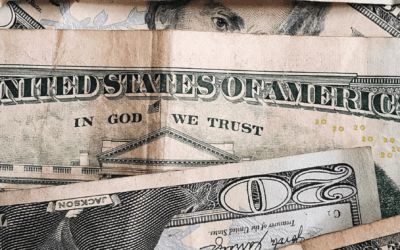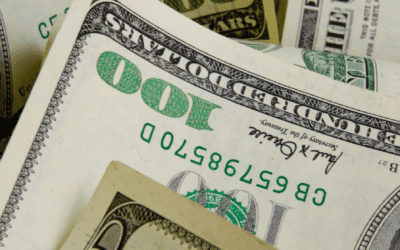If, like us, you track global markets, exchange rates, and bank yields, the idea of a currency collapse is interesting on many levels.
It can present the opportunity to earn high yields, not only in foreign bank accounts, but also in government debt. If you’re interested in investing in government debt, this article explores the offerings that might be worth taking part in, and those which frankly aren’t worth touching. Find out more about our high-level services for successful entrepreneurs and investors here.
With some European countries paying negligible interest, the thirst for yield is huge. Park your money in Swiss bonds for a year and you’ll pay them more than half of one percent for the privilege. Park your money in assets like gold, and you may avoid inflation but won’t earn yield.
The challenge is determining which sovereign bond offerings are worth investing in. As they say, never catch a falling knife; no doubt some of the world’s highest yielding government bonds are denominated in local currencies that will depreciate against the dollar or euro even more.
Government Bonds With High Interest Rates
Before we get started, let’s clarify that this article is not intended to provide any kind of investment advice. Any investment is potentially risky, and investing in government debt typically based in random foreign currencies can be especially risky, even for experienced investors.
Basically, any decision you make with this information is yours alone and you’re responsible for the consequences of your own investments.
With that said, here are the world’s highest yielding government bonds as of September 2023.
Argentina
Government Bond Interest Rate: 40.45%(One year)
Argentina is no stranger to hyperinflation or economic collapse, its current inflation rate is a massive 113%. Decades of failed economic policies, repeated debt defaults, printing money, and political volatility have led Argentina to hyperinflation.
With access to finance curtailed by debt default, the global pandemic brought a severe decline in economic prospects of citizens, nearly 40% of whom live in poverty.
Recently, the Argentine peso fell to record lows against the dollar. In fact, the peso is still plunging, reaching 0.0029:1 against the dollar.
If you’re willing to gamble on the Argentine peso, a one-year government bond is currently yielding 40.45%. Technical indicators suggest a strong sell. Meanwhile, banks are offering a staggering 112% on term deposits, meaning the government may have a higher default risk.
When you consider that the peso has historically had one of the world’s largest currency black markets, you’re probably best to stay away.
Egypt
Government Bond Interest Rate: 26.8% (Six months)
The potential of Egypt as an investment destination is best described as a mixed bag. Some experts regard its thriving property market, geo location, and skilled labor as a plus, others point to Egypt’s recent severe economic mismanagement as a strong negative. In a country where the military still controls large parts of the economy, headline inflation recently hit 39.7%.
In addition to having the world’s worst citizenship by investment offer, Egypt also has a lot of governmental instability. Enough, in fact, to force consideration of whether state bonds will be repaid.
After years of gradual descent against the dollar, one Egyptian Pound will currently get you US$0.032. A series of steep devaluations since March 2022, have seen the local currency lose nearly half of its value against the greenback.
Maybe that’s why Egypt’s sovereign bonds are paying some of the highest interest rates among emerging markets. You would need a healthy risk appetite to take them up.
Turkey
Government Bond Interest Rate: 21.7% (Two year)
Turkey is still in the grip of a five-year economic crisis that has seen record high inflation and a plunging currency. With the inflation rate at 58.9% in August 2023, and the Turkish Lira falling to 26.9 against the US Dollar, some experts are saying that Turkey has hit rock bottom.
So much so, that The World Bank is signaling a potential turnaround, in the form of interest rate increases to control inflation, and tax hikes to reign in Turkey’s budget deficit. Obviously, it’s a wait and see, but a tightening of monetary policy and regulatory reform could be setting Turkey on the road to recovery.
Currency collapse is a big part of the reasons why Turkey’s government bond yields are now well into the 20% range. There’s definitely an opportunity to arbitrage investments in Turkey for immigration status as part of, say, a passport portfolio.
Turkey’s deficit widened further after its devastating earthquakes, now standing at 43.00 percent of GDP. You can earn up to 23.5% in lira at the local bank, although the process isn’t as easy as it used to be. The big question is whether Turkey’s Government will use its heft as a large domestic economy to put pressure on bond holders. If the lira can recover once more, that 21.7% will look like a wise investment.
Kenya
Government Bond Interest Rate: 14.9% (One year)
While the Kenyan Shilling remains firmly on the back foot against the dollar (US$1 dollars buys 145.7 KES) there are signs of some financial stability amidst recent political tension. The World Bank projects that Kenya’s economy will expand 5% this year as agricultural output is boosted by favorable weather.
Recently elected president William Ruto took the unpopular step of implementing a new tax system to limit borrowing, increase government revenues, and cut spending. This on the back of a growth rebound after the pandemic.
It seems the fiscal strength of Ruto’s Kenya will be tested by the repayment of a $2 billion Eurobond that matures in June 2024. Kenya’s Treasury does not appear keen to refinance part of the bond, citing investors’ confidence in its stance of forking out $135.6 million in interest payments. Unless the bond is repaid, debt pressure looks set to continue.
Like many African economies, Kenya is a land of contradictions. It has become a regional economic hub in east Africa, with startups and multinational corporations alike setting up shop in Nairobi. The economy continues to grow, but there are still sad economic realities that Kenya needs to face.
Kenya’s total public debt stands at 67% of GDP, which the IMF rates as being at a high risk of distress. Despite relative progress among developing nations, investing in Kenya remains risky.
Brazil
Government Bond Interest Rate: 9.7% (Two years)
Like its neighbor Argentina, Brazil has long been something of a basket case. This is a country where opening a business bank account takes nine months in some cases; the same account would take about an hour elsewhere. That said, in inflationary terms, at least, Brazil is way more stable, with a current rate of 3.99%.
With relatively benign growth in the last few years, Brazil’s economy rebounded in the first quarter of 2023 on surging agricultural output.
Recent political turmoil has done little to help Brazil on the international stage. Brazil’s currency has suffered a not-quite-Turkey-esque slide in recent years. After replacing the controversial Jair Bolsonaro with socialist president Lula, Brazil’s currency dipped further. Supporters of the right-wing former leader stormed government buildings to protest against his electoral loss.
In the resulting chaos, Brazil’s real fell 0.6% to trade around 5.257 per dollar, it has recovered slightly since to 4.98. That said, some analysts suggest that Brazil’s currency does not deserve the beating it’s taken. Despite being among the worst-performing emerging market currencies, they posit that the fundamentals of Brazil are stronger than many think.
Either way, Brazil sovereign debt rates are currently yielding an impressive 9.7% on a two-year offering. If you agree that the Brazilian real will recover against your base currency, you may take the risk on the country with a current bank deposit interest rate of 10.03%. That’s if you don’t explode before someone opens a bank account for you.
Namibia
Government Bond Interest Rate: 8.7% (One year)
The Namibian dollar may have the worst peg on the planet. After being freed from South African occupation in 1990, Namibia went on to develop its own currency but pegged it to the South African rand. While the dollar hasn’t exactly been kept at par with the declining rand, poor reserves and its close association have sent Namibia’s dollar falling against developed currencies.
In 2023, Namibian Government debt is projected to skyrocket to 69.6% of GDP. Its sovereign credit rating has also deteriorated from investment grade to junk status after a downgrade in 2017, when debt-to-GDP hit a then all-time high of 42%.
Economists blame the downgrade on the government’s stance of borrowing, rather than making difficult cost-cutting decisions. Namibia’s sovereign debt is currently paying a coupon rate of 8.7%, and most technical indicators list the debt as a “strong sell”.
India
Government Bond Interest Rate: 7.2% (Two years)
India’s lagging infrastructure, massive rural population, and high poverty rates have long been associated with a sense of economic disorder. Today, though, India appears to be on the verge of change. A burgeoning middle class, a digital-savvy and English-speaking workforce, and its emerging status as a BRIC powerhouse have done much to dispel these notions.
In a country where retail inflation is stable, and national debt is reducing, S&P Global Ratings is considering an upgrade in India’s sovereign rating. Record growth has seen India’s GDP expanded by 7.8% annually to the end of June 2023.
India’s economy, however, is still a tale of good and bad. Its public debt remains at a high level for an emerging economy, at around 84% of GDP. Efforts backed by the 2016 insolvency law have seen the country start to tackle the world’s highest level of bad loans. Despite this, it remains to be seen if India will meet its fiscal deficit targets this year.
Overall, India still seems like more risk than we’d like to take on for a relatively low interest rate, but there are two sides to every story. Park your money in rupee-backed debt for two years and you’ll earn 7.2%. As to banking in India to earn similarly high interest rates, it’s probably not advisable.
Bahrain
Government Bond Interest Rate: 6.3% (Two years)
More promising is the Gulf nation of Bahrain. Bahrain has the distinction not only of being an oil-producing nation, but of having its national currency – the Bahrain dinar – pegged to the US dollar at a rate of 2.65 (Yes, the dinar is one of a handful of currencies stronger than the US dollar.)
However, with an economy heavily dependent on oil, Bahrain has low reserves and high extraction costs. In 2022, it did, however, recover well from the turmoil of Covid, benefiting from higher oil prices and strong tourism and construction-driven GDP above 6%.
While the first half of 2023 signaled lower oil prices and a revision to weaker growth, the gulf state economic recovery plan has seen growth in its non-oil sector.
With national debt reaching USD $39.4 billion in June 2023, credit worries have driven up yields as well as the cost to insure its debt. If you believe that Bahrain will be able to support its US dollar peg, then today’s yields may be quite attractive for you given their effective convertibility to/from US dollars.
With yields on two-year government debt at 6.3%, foreigners can’t open bank accounts in Bahrain without a work permit, so this is the easiest way to earn interest on holding the dinar.









